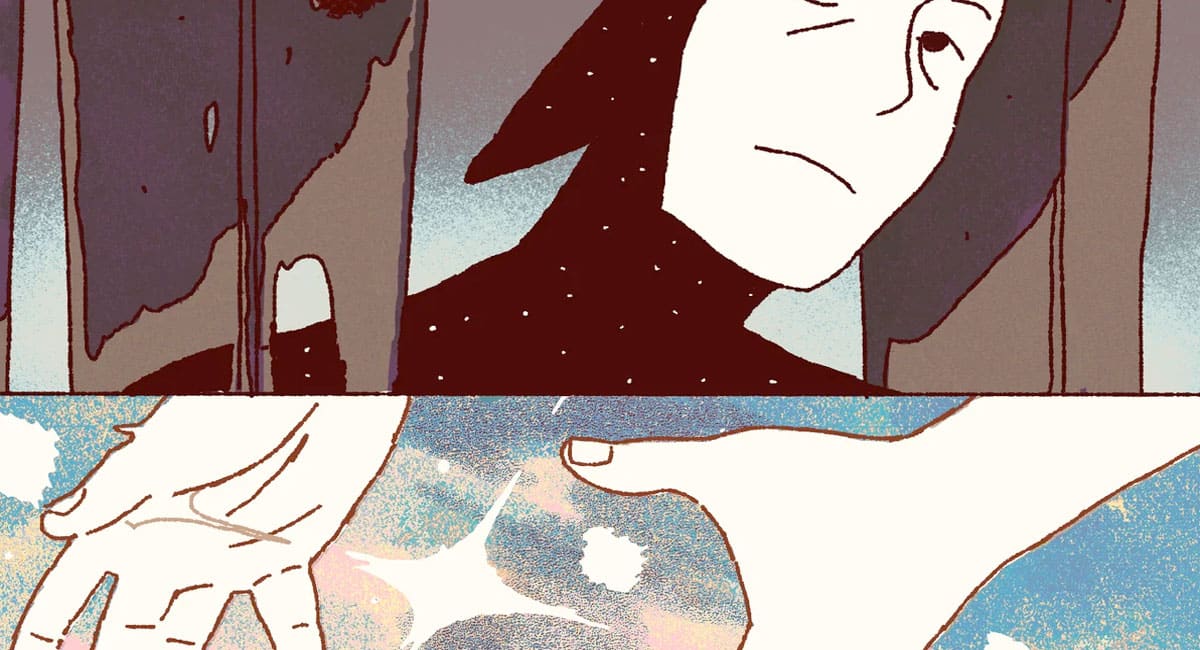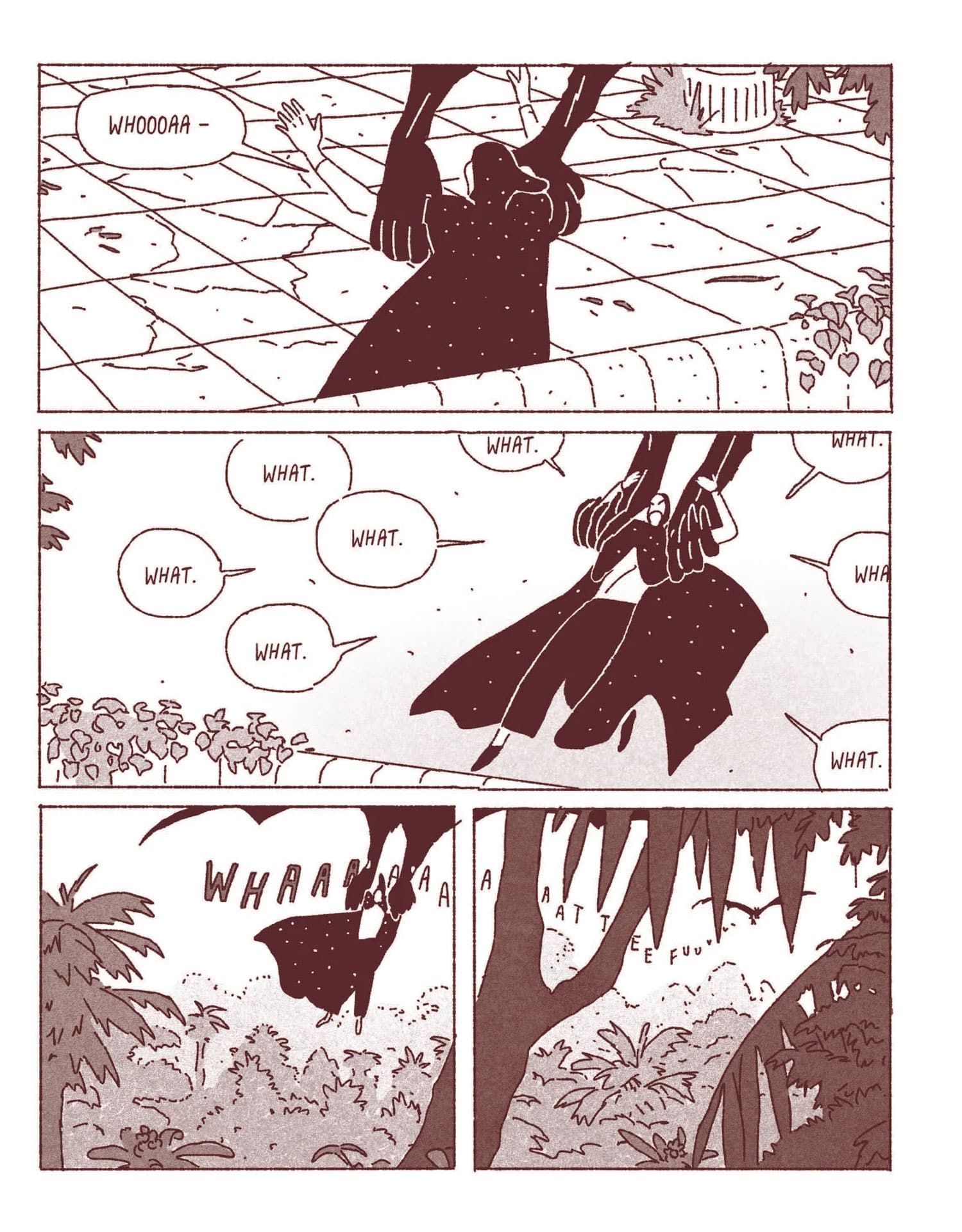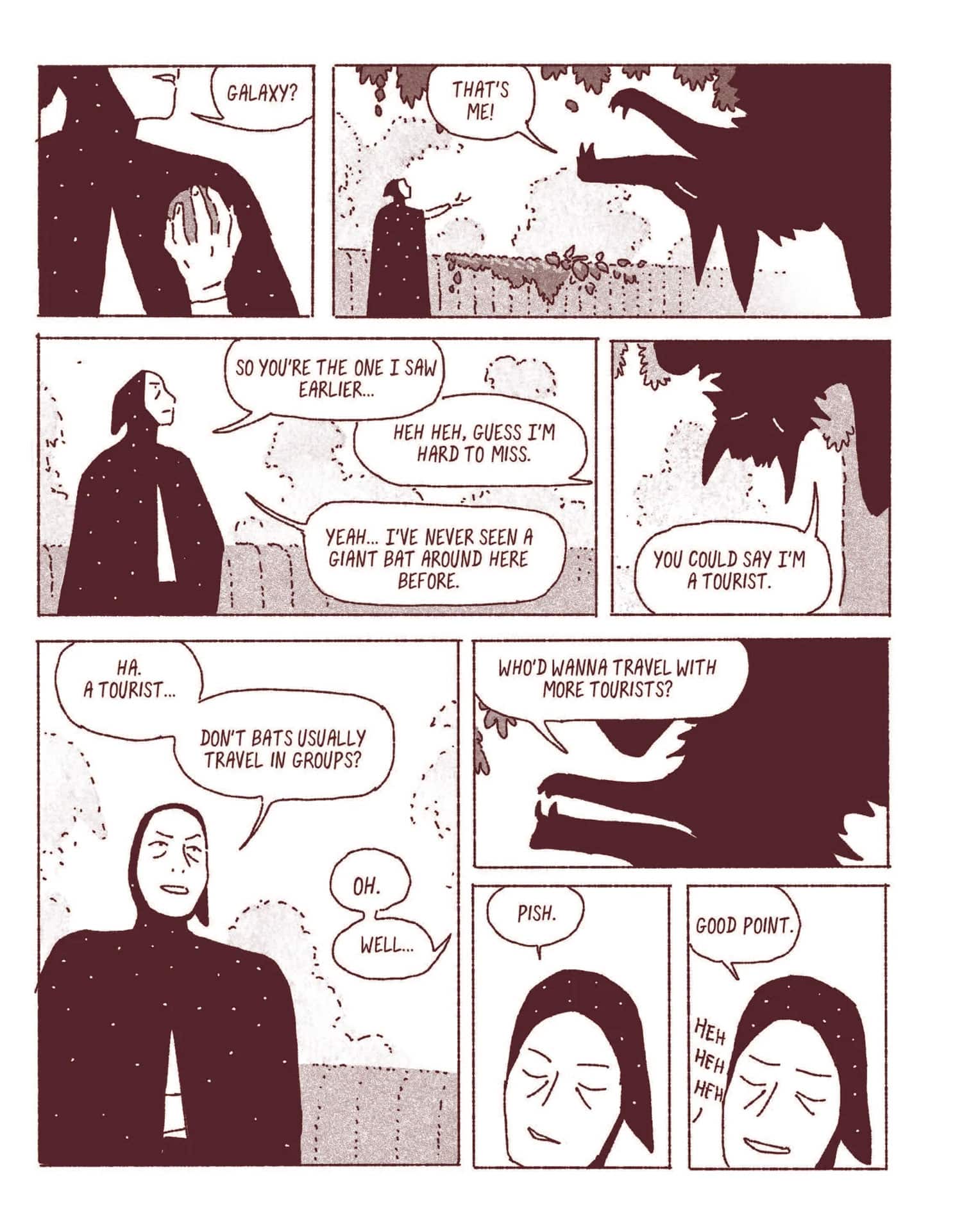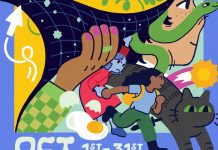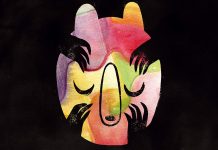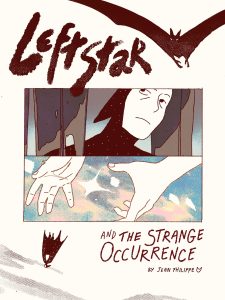
Written and illustrated by Jean Fhilippe
Published by Silver Sprocket
LS is full of doubt. Their inability to produce a perfect version of what’s in their head from the very outset causes them to abandon every project. They’ve started again from scratch so many times that the long term result is LS has nothing finished. And the more time passes, the more their regret mounts. Coincidentally a giant mischievous bat suddenly shows up, bent on either driving LS up a wall or helping them out (possibly both). Conditions: impossible. Situation: relatable. This is the secret to Jean Fhilippe’s magic graphic novel, Leftstar and the Strange Occurrence.
It’s no wonder LS can’t connect, LS is not taking care of themself, like, at all. They’re a contemporarily-coded burnout in a fabricated, fantastic, speculative fiction setting. Want to cast a spell? Get some actual sleep, LS! The fantasy genre is a mask to deal with a concrete dilemma, the character is paramount to the story, not the setting. The metaphor is in service to what the author is trying to figure out. The story is about having a problem: you used to be able to make magic, and now you can’t anymore.
I know what you’re thinking. Kiki’s Delivery Service. Indirectly, yeah, “magic” like whatever you the reader relate it to. The fear of losing it if you don’t use it, the despair that comes from fear being the reason you use it. LS however is learning their lesson the Earthsea way. Spirit guides and parallel planes of existence. Wizards, monsters, and magic mirrors. The concern is, are you okay. The quest is for peace. If the demon is the consequence of your actions, it’s your responsibility to face it- as a collaborator rather than a combatant.
LS is haunted by their inability to complete what they start. They can’t even make anything anymore, which is the central conflict of the comic. Going for a walk to get the mail and falling for a superior distraction, MacGuffin or another metaphor? Leftstar can be very direct, the reason for the conflict is confidence, and it says so. At the same time, it’s a parable: the wizard who is profoundly disappointed in themself has a giant demon bat thing hanging around.
The aesthetic, metaphoric or not, is integral to the story. The character might come first, the setting still makes Leftstar what it is. “Losing your magic” might mean anything to you, or me, or Fhilippe. But in this book, magic means star cloaks and bat rides and ancient elegant buildings in verdant isolation. Aged stone steps trace a path through the grass. A dragon appears to bite you on the ass.
Fhilippe’s comic displays an imaginative range of detail that recalls Tillie Walden’s On A Sunbeam, achieving museum high art and sketchbook intimacy both. A Mediterranean coast without cities done delicately, a monochrome study outlined gently in Microns. The oracle who lives there, on the other hand, has the bold surety of a comic strip character, Moominvalley anarchist faerie attitude. Cartoon-y but still sophisticated. Somber not grim. The art, the vibe.
I found Fhilippe’s pacing as a cartoonist really compelling as well. Panels grow and shrink, elongate and pile on the page at a complex, natural rate. Leftstar clutters and breathes by the need of the moment. Panels come in dense and uniformly when the dialog bounces back and forth, then elongate for an establishing shot or an insert, before snapping back to story size and carrying on, all in the same row or two! There are tiny splash page beats on packed pages. The layouts move to the emotional rhythm of the story. The read felt like it went fast and smooth, but the story itself didn’t move at just one speed.
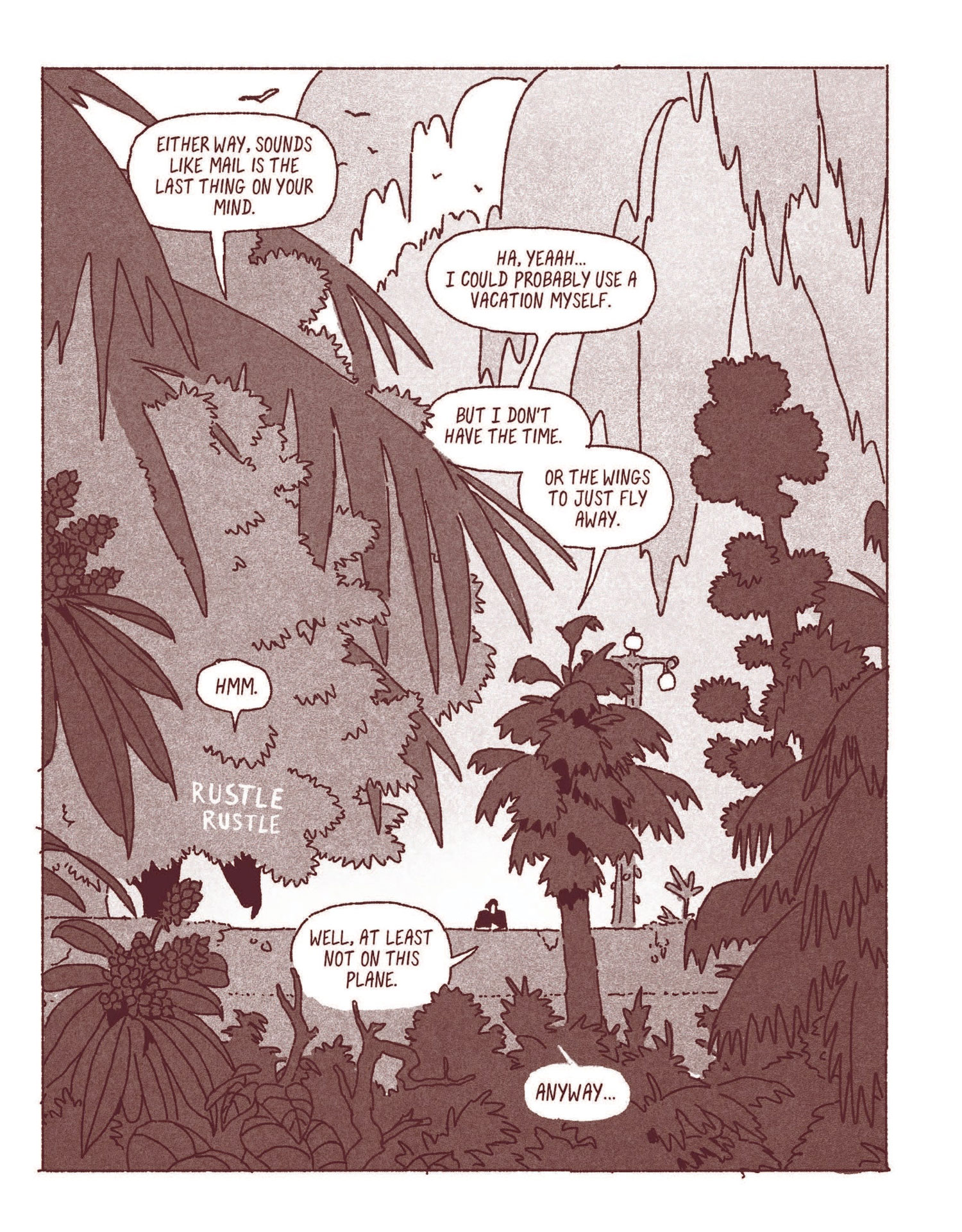
Leftstar achieves an effortless narrative by exerting a great deal of effort. It’s a thoroughly planned story, a comic made for a reason. And it respects its readers enough to let them answer the questions it poses. You separate the good from the bad. You decide who’s at fault, and how much, human, monster, metaphor.
Leftstar and the Strange Occurrence is available from Silver Sprocket or wherever fine comics and books are sold.



